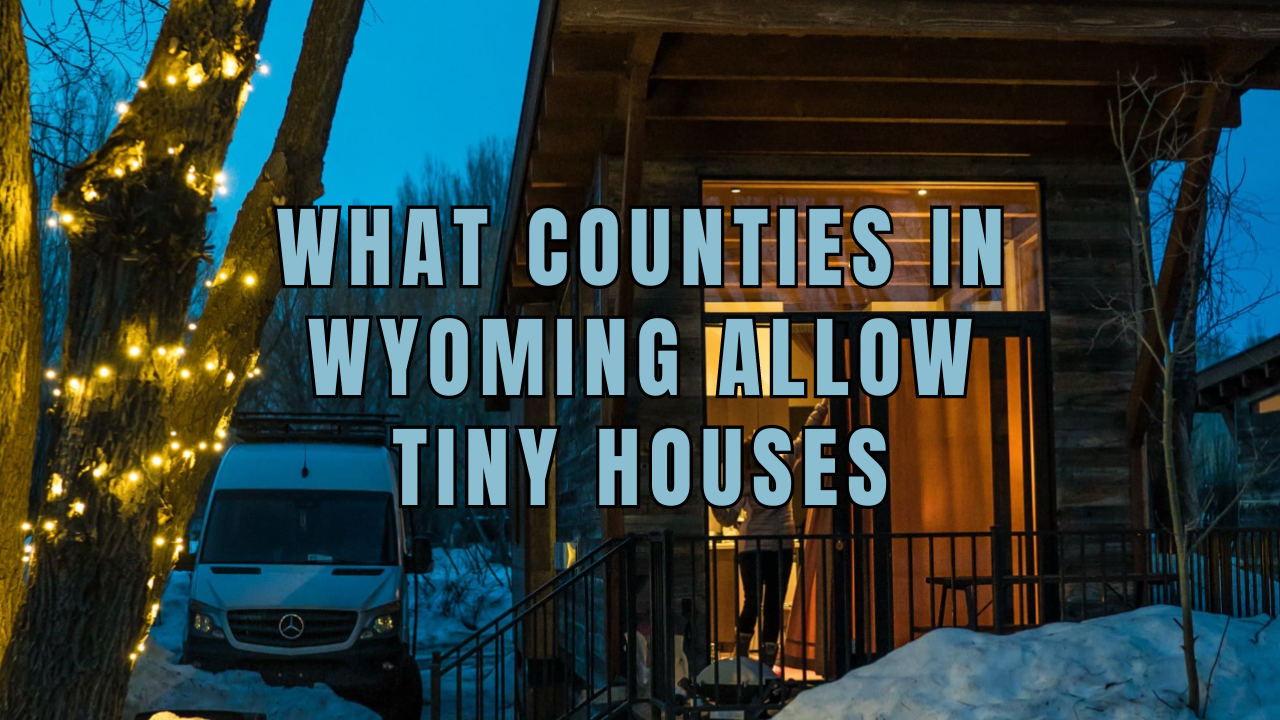Texas is one of the most tiny house-friendly states in the US. Not a single piece of legislation defines or governs tiny dwellings. Instead, zoning laws and building standards specific to each county and city govern the location, size, and design of small dwellings.
In this article, we will discover the rules and regulations to build tiny homes, where you can buy a tiny house, and the counties that are more accommodating and lax than others; some even create communities or designated zones just for tiny homes.
Tiny House Prices in Texas
Now that you have set sail on your tiny house project, you are probably wondering about pricing options that fit your budget and your tiny living dreams.
Great news! We have an option for every living style and budget to help you move one step closer to your living project. Check out tiny houses for sale in Texas!
What Counties in Texas Allow Tiny Houses?
Many counties in Texas are well-known for their accommodating policies toward tiny dwellings. Particularly in rural regions with laxer zoning regulations. Counties designated as conducive to tiny homes include:
Ellis County
The Texas tiny county without any zoning or code violations is Ellis County. Nonetheless, you must still follow Ellis County’s official building and engineering standards, drainage, plating, and other requirements and regulations if you plan to construct a tiny home there.
Brown County
One of the Texas counties that permits tiny houses is Brown County. If you want to build a tiny house in Brown County, you need to follow the county’s official regulations regarding building permits, inspections, setbacks, utilities, etc.

Tiny House Regulations And Rules In Texas
Texas does not have a statutory definition for small dwellings; instead, local land-use rules and regulators make this determination using the International Residential Code (IRC). It contains precise recommendations about ceiling height, floor space, and land availability.
Permanent Structure Rules
In Texas, zoning regulations may apply directly or indirectly to a tiny dwelling. It needs to follow building safety regulations and be constructed on a foundation. The homeowner must comply with this, as the residence will be taxed in the same manner as the land it is on.
Room dimensions, electrical components, and plumbing fittings are examples of additional utility needs. It’s a good idea to inquire at the local planning and zoning office.
- All rooms must have a minimum floor space of 70 square feet or greater, except for the kitchen
- The living room’s floor space must be at least 120 square feet.
- All livable rooms, restrooms, halls, and corridors must have ceilings at least 7 feet high.
- Toilets, water closets, tubs, and showers are necessities in compact houses.
- A minimum of 320 square feet of ground for each tiny home.
- Every tiny house follows the International Residential Code (IRC), or IRC Appendix Q for small dwellings.
Temporary Structure Rules
To meet their quality criteria, proprietors of temporary homes need to have the American National Safety Institute (ANSI) evaluate their buildings. Owners are sure their tiny home on wheels complies with ANSI safety rules, as the certification exempts them from personal property tax on their tiny units.
Transitional Structure Rules
In Texas, consider parking a tiny house on wheels only in locations obscured from view from the road. Apply additional criteria based on the particular tiny house laws and zoning laws.
Furthermore, tiny houses on wheels (THOWs) are recreational vehicles and face restrictions when used as permanent residences. They are parked in RV or mobile home parks.
In Texas Where Can I Build A Tiny House?
The location of your tiny house is vital. Select a certified tiny house builder to guide you through the process, manage all the paperwork, and ensure your residence complies with building codes.
Although constructing a tiny house is a big project, it does not need to be stressful if you plan accordingly. The typical places for tiny houses include.
- RV parks
- National Parks and campgrounds
- Tiny house communities
- Private properties

Tiny House Communities in Texas
Big friendliness and southern charm may be found in Texas when it comes to towns that welcome tiny homes. With its expansive landscapes, Texas is the ideal place to establish your tiny home. Big Texas cities, rich in culture and nightlife, provide the best of both worlds: the proximity to country living and the activity and excitement of a city.
Village Farm Tiny Home Community
Intending to simplify living and promote a sense of community, Village Farm is a vibrant small-house community situated in East Austin, Texas. It is focused on Green Gate Farm and aims to improve the lives of its members.
Village Farm will begin construction in 2022 and provide 48 tiny house lots in its initial phase. In the fourth phase, it will add 119 additional lots. Residents will have easy access to facilities when the four stages are finished, such as a general store, cafe, amphitheater, community gardens, pocket parks, and more. The reason is to promote a sense of community.
Indigo River Tiny Homes Community
Indigo River is one of the biggest tiny house communities in Texas, with over 2,000 houses. Small-home DIY enthusiasts, producers of tiny house accessories, and small-home builders compose this group.
Tiny House Builders Near Me
Great Lakes Tiny Homes offers multiple tiny house designs with nationwide delivery, eliminating the need to scout for local builders to find your dream home.
Furthermore, Great Lakes Tiny Homes is an RV Industry Association (RVIA) builder. Passionate about the highest manufacturing standards and strict compliance with the building, safety, and regulatory guidelines for compact residences.
Do I Need a Certified Builder?
Yes, you do. Consider the DIY approach, but the risks are higher and the results are uncertain.
Working with an RVIA-certified builder, like Great Lakes Tiny Homes, assures you will own a tiny house manufactured according to tiny home rules and regulations.
Furthermore, it offers peace of mind because it ensures the materials in your residence are safe, durable, and of top quality.
Other advantages of working with a certified builder include streamlined access to financing options and insurance coverage. Compliance with RVIA standards certifies your tiny house is a safe and habitable environment.
FAQs
Can You Make a Tiny House in Texas Your Main Residence?
Yes, you can make a tiny house your permanent residence in Texas.
However, be mindful of the local rules and regulations. The best practice is to check with your local authorities and zoning officials to discover if your tiny house adheres to codes and regulations, including inspections.
Do your homework and work with certified builders to enjoy the perks of a simpler, more sustainable lifestyle in Texas.
Can I Build a Tiny House in Fort Worth, Texas, in My Backyard?
The short answer is yes, as long as it fits inside the appropriate residential zone and adheres to the city’s regulations, which include some of the following permits for ADUs in Fort Worth. Follow the city’s construction code for a safe and livable structure. Must keep the setbacks on the property (or the space that separates it from the property boundary).
In Texas, Are Tiny Homes Subject to Property Taxes?
In Texas, zoning regulations may apply directly or indirectly to a tiny dwelling. It needs to follow building safety regulations and the construction on a foundation. The homeowner must comply with this, as the residence taxes will be in the same manner as the land it is on.
Conclusion
Living in a tiny house is often encouraged in Texas, particularly in the more rural counties. However, to guarantee compliance with all relevant rules and standards, potential tiny homeowners must thoroughly investigate local legislation and speak with specialists.
The degree of autonomy that towns and counties have in implementing zoning rules is the reason for the variances in tiny home restrictions throughout Texas. Due to their limited zoning power, rural regions often have fewer limitations, but cities have great jurisdiction and may impose some criteria close to metropolitan centers.





